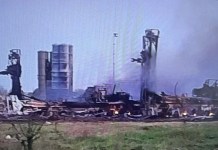The February 1 military coup in Myanmar has put a big question mark on the Rohingya repatriation, a matter being closely watched by the international community. But the issue is also linked to Myanmar’s ‘long-term friend’ China, which is allegedly aiding and abetting the Rohingya militancy in the country.
Why EIU Called India A ‘Flawed Democracy’ & Termed Rival Pakistan A ‘Hybrid Democracy’?
Nearly 750,000 Muslim Rohingyas had fled ethnic clashes in Myanmar’s Rakhine state in 2017 and took shelter in neighboring Bangladesh, resulting in one of the worst humanitarian crises in recent years. The US, Europe as well as the United Nations have raised concerns over the plight of over 600,000 Rohingyas that are still in the country.
Myanmar’s de facto leader Daw Aung San Suu Kyi, who was arrested following the military’s takeover of power last week, had been widely criticized for her alleged failure to prevent the violence against the Rohingyas in 2017.
Most importantly, it is the Myanmar military or Tatmadaw, that came under the scanner over what is termed as the ‘2017 genocide’. The army was accused of siding with the Buddhist-majority attackers, thereby drawing global condemnation.
The military commander-in-chief, Senior General Min Aung Hlaing, is already facing sanctions from the US and the European Union for the alleged crackdown on the Rohingyas.
On February 4, the United Nations Security Council came out with a statement taking a strong note of the military coup and calling for an immediate release of the civilian leaders, including State Counselor Suu Kyi and President Win Mynt.
The UNSC statement also touched upon the Rohingya crisis. “The members of the Security Council reiterated the need to address the root causes of the crisis in Rakhine State and to create conditions necessary for the safe, voluntary, sustainable and dignified return of displaced persons,” it said.
JUNTA VIOLENCE
Min Aung Hlaing robbed our hopes of Democracy!!#Feb10Coup #WhatsHappeningInMyanmar pic.twitter.com/iAUCs5aU4o— MAYAUNG (@MAYDINGIE2021) February 10, 2021
According to reports, the UK had drafted an initial text condemning the coup, but later it was toned down, most likely at the behest of China and Russia, Myanmar’s long-term allies. While Moscow and Naypyidaw maintain close defense ties, Beijing has made huge investments in the Southeast Asian nation besides pushing its ambitious Belt and Road Initiative (BRI).
China – A Double-Edged Sword
“China is a friendly neighbor of Myanmar’s. We hope that all sides in Myanmar can appropriately handle their differences under the constitution and legal framework and safeguard political and social stability,” Foreign Ministry spokesman Wang Wenbin said at the daily news briefing in Beijing on February 1.
China’s muted response to the latest development in Myanmar is quite understandable. First and foremost, Beijing wants its business and economic interest protected irrespective of who is in power in Naypyidaw.
When Myanmar had faced intense heat from Europe and the US in the wake of the 2017 Rohingya crisis, China and Russia shielded the country against any major action, including UNSC resolutions. UN Secretary-General Antonio Guterres had joined several Western nations in accusing Tatmadw of ethnic cleansing, which it denied.
In December 2017, the two countries had opposed a UNSC resolution although the latter urged Myanmar to end the military campaign against Rohingya. A year later, both Beijing and Moscow had boycotted talks on the Rohingya refugee crisis.
Earlier this month, the United Nations raised concerns that the military coup would worsen the plight of some 600,000 Rohingya Muslims still in the country.
“At this point in time, we must ensure the protection of people of Myanmar and their fundamental rights. We must do everything to prevent violence from breaking out,” the UN’s Myanmar envoy Christine Schraner Burgener said.
China Fueling Unrest In Myanmar?
Despite the friendly ties between China and Myanmar, the latter is aware of Beijing’s tacit support to the Rohingya militants that are fighting against Tatmadaw in the Rakhine state.
There have been reports of China providing funds and weapons to the Rohingya militant outfits — Arakan Army (AA) and Arakan Rohingya Salvation Army (ARSA) — both are tagged as terrorist organizations in Myanmar.
Last year, a security analyst with experience in Southeast Asia had confirmed that about 95 percent of AA funding comes from China and the terrorist organization possessed as many as 50 man-portable air defense systems (MANPADs) – surface-to-air missiles.
In June 2020, Myanmar military chief Min Aung Hlaing had sought international cooperation in the fight against terrorism and claimed that terrorist groups exist because of the strong forces that support them. Analysts were quick to point fingers at China, saying that Tatmadaw is fully aware of Beijing’s continued support for these terror outfits.

The Rohingya movement has received funding and political support from countries and sympathizers in the Middle East and from some countries in the West, The Irrawaddy reported.
And China is using its proxies to create unrest not only in the Rakhine state but other ethnic regions in Myanmar as well. For instance, in August 2019, an ethnic rebel alliance — Northern Alliance-Burma (NAB) – had carried out a terror attack on a military academy in Pyin Oo Lwin near Mandalay, killing two civilians and leaving several others injured.
It later emerged that the rebel groups, including the Arakan Army, involved in the attack had close links with China, and their leaders often visit Yunnan province across the border.
The Rohingya – Past Tense, Future Hazy
According to Myanmar observers, despite international pressure, the Buddhist-majority Southeast Asian nation is unlikely to take back all the refugees currently staying in Bangladesh’s Cox’s Bazar area. Dhaka has created low-cost housing accommodations for 100,000 people at Bhasan Char, a 40-sq km island in the Bay of Bengal in Bangladesh’s Hatiya Sub-District.
The first batch of 1,642 refugees was shifted from the existing camps in Cox’s Bazar to Bhasan Char, Guwahati-based senior journalist Rajeev Bhattacharyya, who had reported on the Rohingya issue, told The Eurasian Times. Reports suggest Dhaka will move another batch of 3,000 people to this remote island.
However, the question remains how long Bangladesh, one of the most densely-populated nations, will take care of this huge number of refugees.
Some experts believe that even if Myanmar agrees to take back the Rohingyas, their number will not be more than 40,000 and those returnees may have to live in a barricaded area, much like concentration camps. Their rights could be curbed, movement restricted and they may have to spend the rest of their lives in perpetual fear.
Notwithstanding the global outcry, there is no easy solution in sight to the Rohingya problem, at least for now.





